金丽衢十二校2018届高三第三次联考英语试题及答案整理
金丽衢十二校2018届高三第三次联考英语试题及答案整理,本文伊顿教育小编为大家整理了金丽衢十二校2018届高三第三次联考英语试题,希望能帮到大家!距离高考仅剩两周的时间了,希望同学们能够坚持到较后,迎接高考,在高考这个战场上取得好成绩。加油!需要核对答案的同学请点击:金丽衢十二校2018届高三第三次联考英语试题参考答案
小编创建了【高中学习交流站746303724】群内会不定期分享学习资料,欢迎大家的加入哦

2017学年金丽衢十二校高三第三次联考英语试题
本试卷分第Ⅰ卷(选择题)和第Ⅱ卷(非选择题)。第Ⅰ卷1至7页,第Ⅱ卷7至8 页。150分,考试用时120分钟。考试结束,将本试卷和答题卡一并交回。
第I卷(选择题)
注意事项:
1.答第Ⅰ卷前,考生务必将自己的姓名、准考证号填写在答题卡上。
2.选出每小题答案后,用铅笔把答题卡上又对应题目的答案标号涂黑。如需改动,用橡皮擦干净后,再选涂其他答案标号。不能答在本试卷上,否则无效。
第一部分听力(共两节,30分)
做题时,先将答案标在试卷上。录音内容结束后,你将有两分钟的时间将试卷上的答案 转涂到答题卡上。
第一节(共5小题;每小题1.5分,7.5分)
听下面5段对话。每段对话后有一个小题,从题中所给的A、B、C三个选项中选出较佳选项,并标在试卷的相应位置。听完每段对话后,你都有10秒钟的时间来回答有关小题和阅读下一小题。每段对话仅读一遍。
1. What did the woman buy?
A. A scarf.
B. Gloves.
C. Chocolates.
2. At what time will the man meet the woman?
A.4:15.
B. 5.15.
C. 5.30.
3. Where does the conversation take place?
A. In a post office.
B. At a bus station.
C. In a café.
4. How does the man feel about the woman?
A. Worried.
B. Confident.
C. Angry.
5. What are the speakers mainly discussing?
A. A person.
B. A horse.
C. A cartoon character.
第二节 (共15小题;每小题1.5分,22.5分)
听下面5段对话或独白。每段对话或独白后有几个小题,从题中所给的A、B、C三个选项中选出较佳选项,并标在试卷的相应位置。听每段对话或独白前,你将有时间阅读各个小题,每小题5秒钟;听完后,各小题将给出5秒钟的作答时间。每段对话或独白读两遍。
听第6段材料,回答第6、7题。
6. Why doesn't the woman want to go to the cinema?
A. She doesn't like the films on show.
B. She can't afford the ticket.
C. She has booked a table in a restaurant.
7. What does the man suggest doing in the end?
A. Watching DVDS at home.
B. Eating in a restaurant.
C. Going to a store
听第7段材料,回答第8、9题。
8. When will the man arrive at the airport tomorrow morning?
A. At about 9: 00.
B. At about 10: 00.
C. At about 11:00.
9. What will the man do in Italy this time?
A. Sunbathe on the beach.
B. Attend a cultural meeting.
C. Visit museums and art galleries.
#p#副标题#e#
听第8段材料,回答第10至12题。
10. Where does the man come from?
A. Mexico.
B. America.
C. Germany.
11. What does the woman think of Mexico?
A. Busy.
B. Quiet.
C. Expensive.
12. Why does the woman prefer New York to Mexico?
A. People are friendlier.
B. Life is more exciting.
C. It is more beautiful.
听第9段材料,回答第13至16题。
13. What is the relationship between the speakers?
A. Old schoolmates.
B. Fellow workers.
C. Employer and employee.
14. How long did the woman spend on a holiday recently?
A. 10 days.
B. 14 days.
C. 30 days.
15. What does the woman suggest doing?
A. Visiting Mike.
B. Travelling to Australia.
C. Having a party.
16. What will Wilson do this summer?
A. Take a holiday.
B. Look for a job.
C. Deal with his work.
听第10段材料,回答第17至20题。
17. What do we know about Beowulf?
A. Its author is unknown.
B. It is a famous novel.
C. It is easy to understand.
18. When was Middle English used?
A. Between about AD 800 and AD 1066.
B. Between about AD 1066 and AD1150.
C. Between about ad 1150 and AD 150.
19. What is Geoffrey Chaucer?
A. An English historian.
B. A Middle English poet.
C. A Modern English writer.
20. What will the speaker talk about after the break?
A. Modern English.
B. Middle English.
C. Old English.
#p#副标题#e#
第二部分阅读理解(共两节,35分)
第一节(共10个小题;每小题2.5分,25分)
阅读下列短文,从每题所给的A、B、C和D四个选项中,选出较佳选项,并在答题卡上将该项涂黑。
A
The letter that would change everything arrived on a Tuesday. It was an ordinary morning in mid-April that smelled of clean washing and grass-cuttings. Harold Fry sat at the breakfast table, freshly shaved, in a clean short and tie, with a piece of toast that he wasn't eating. He gazed beyond the kitchen window at the lawn.
“Harold!” called Maureen above the vacuum cleaner, “Post!”
He thought he might go out, but the only thing to do was mow the lawn and he had done that yesterday. The vacuum tumbled into silence, and his wife, Maureen appeared, looking angry, with a letter. She sat down opposite Harold. Maureen was a slight woman with a cap of silver hair. When they first met, nothing had pleased him more than to make her laugh.
"It’s for you, "she said. He didn’t know what she meant until she slid an envelope across the table and stopped just at Harold s elbow. They had never seen one before. It was pink. The postmark said Berwick-upon-Tweed.
He didn't know anyone in Berwick. He didn't know many people anywhere. "Maybe it's a mistake."
“I think it's not. They don't get something like a postmark wrong," she responded.
Harold studied the mysterious envelope. Its pink was not the colour of the bathroom suite, or the matching towels. That was a vivid shade that made Harold feel he shouldn't be there. His name and address was scribbled in ball-point pen, the clumsy letters collapsing into one another, as if a child had dashed them off in a hurry; Mr. Harold Fry, 13 Fossebridge Street, Kinsbridge, South Hams. He didn't recognize the handwriting
“Well?” said Maureen, passing a knife. He held it to the corner of the envelope and tugged it through the fold. “Careful,” she warned.
He could feel her eyes on him as he eased out the letter, and put on his reading glasses. The page was typed, and addressed from a place he didn't know: St Bernadine’s Hospice(善终收容服务). Dear Harold, This may come to you as some surprise.
His eyes ran to the bottom of the page.
"Well?" said Maureen again.
“Good lord. It's from Queenie Hennessy. She worked at the brewery, years ago. Don't you remember? Maureen? A kind friend. It's, it's, it's—cancer. Queenie is writing to say goodbye. I… um. Gosh." Tears crammed his eyes.
21. What kind of atmosphere can you feel in paragraph 1?
A. Relaxing.
B. Boring.
C. Interesting.
D. Depressing.
22. What was Maureen possibly doing when the letter for Harold arrived?
A. She was mowing the lawn.
B. She was preparing lunch.
C. She was tidying the house.
D. She was doing up her.
23. According to the text, what kind of person might Maureen be?
A. Elegant and friendly.
B. Charming and careful.
C. Simple and generous.
D. Hardworking and doubtful.
24. What might be talked about in the paragraphs following the text?
A. Queenie’s desire to recover.
B. Queenie’s more explanation about her disease.
C. Harold's decision to ignore the letter.
D. Harold’s memories of Maureen's poor health.
#p#副标题#e#
B
On a Friday morning in November, 2017 in Houston, Texas, a group of 12 Rice University undergraduates in Jayoung Songs second-year Korean language class took out their smart phones opened the You Tube app and fastened their phones to virtual-reality headsets. Within seconds they transported to a typical cafe in Seoul, South Korea and were prompted to begin a mock(模拟) conversation with Korean peers, whose statements and questions had been pre-recorded.
This is the way the innovative(创新的) world of language learning is going as virtual-reality learning videos enter the classroom and provide students with the closest thing to real-life immersion that they could possibly get.
“A lot of literature says that it is really important to be immersed in the language and culture in order to succeed in language learning," said Song, a lecturer of Korean whose dissertation (论文) focused on comparing a face-to-face and virtual-world environment for measuring second-language learners' interactional competence. "But technically, it would be hard for students to go to Korea and learn Korean there, so I wanted to bring that setting to the classroom so that students can experience it with the glasses and their cell-phones.”
Song is one of the first instructors in the university's School of Humanities' Center for languages and Intercultural Communication to mix the technology in her classroom.
In recent years, enrollment for Korean language classes at Rice has doubled to more than 100 students per year. A key driver, according to Song, is South Korea’s export of pop culture, fueled by the popularity of Korean pop(K-pop)music and videos on You Tube and serialized TVK-dramas.
Other virtual-reality scenes that song's students engage in include shopping in a supermarket, traveling on the subway and visiting a doctor’s office. “This local setting really gives it the real immersive experience of learning language and culture,” said Siyu Geng, a senior majoring in mathematics.
“The world is getting into a multilingual and multicultural era, " Song said, "In this time, it's very useful to learn foreign language and culture to become competitive professionals in this linguistically, and culturally diverse world.”
25. What can we infer from the text?
A. Korean’s pop culture has little influence on Rice University students choosing subjects.
B. Song has been brave enough to apply the VR technology to her scientific research.
C. People have been negative about the use of VR technology in language learning.
D. The VR technology has helped solve some troublesome problems in language learning.
26. The underlined word "immersion" in paragraph 2 is closest in meaning to .
A. participation
B. expectation
C. satisfaction
D. competition
27. Which of the following might be the best title for the text?
A. VR, a new approach to language learning
B. VR, a brand-new trend of life style
C. An increase of enrollment of students
D. Song, and his special language class
#p#副标题#e#
C
These days when someone says a computer has a bug in it, usually they mean that there's a problem with one of its programs. Maybe your computer has crashed when you are in the middle of a game. Or you get an error message when you try to go to a Web site.
But back in the early days of computers, a woman named grace Hopper was part of the tear that discovered the very first computer bug.
Hopper was a mathematician. She'd been hired by the navy to help program the new Mark Il computer. The Mark Ⅱ’s job was to quickly solve the math problems ships and airplanes used to find in their way. The Mark Ⅱworked by reading instructions from a long strip of paper with holes punched in it. The computer translated the patterns of holes into the math problems it was supposed to solve.
One afternoon in 1947 Hopper and her team were running a program. But the computer wasn’t giving them the right results. What could be wrong? They finally ended up taking the Mark II apart, looking for problems. What did they find?
It was a dead moth(蛀虫)! The moth was blocking some of the holes on the paper strip----no wonder the computer didn't know what to do.
Hopper knew that the term "bug" had been used before when there were problems with machines. But this was the first time a computer had ever had one. She thought it was funny that it was a real bug. Some people think Hopper was the first person to use the word "debug" to mean “get rid of the problems in a computer”.
Her team kept a logbook of everything they did. They taped the moth onto the page for that day. The logbook, moth and all, is now in the Smithsonian Museum of American History in Washington D.C.
Grace Hopper worked with computers her whole life and went on to become a rear admiral in US Navy. She was the first person to write a word-based computer language. This makes it easier for people to tell computers what to do. Some people called her "Grandma COBOL" after one of the computer languages she helped develop. But to most she was just “Amazing Grace”.
28. What's the writer's purpose in writing paragraph 1?
A. To tell us the main idea of the passage.
B. To arouse the readers' interest to read on.
C. To show the structure of the passage.
D. To give a description of what a bug is.
29. Which of the followings is true to describe Grace Hopper?
A. She was the first expert to use the term “bug”.
B. She was an astronomer to help work on the Mark II.
C. She devoted all her life to work related to computers.
D. She kept a record of all the computers on the Mark II.
30. What is the text mainly about?
A. The history of bug.
B. The discovery of the first bug.
C. Grace Hopper and her bug.
D. Grace Hopper and the Mark II.
#p#副标题#e#
第二节(共5个小题;每小题2分,10分)
根据短文内容,从短文后的选项中选出能填入空白处的较佳选项。选项中有两项为多余选项。
Students Grow During Gap Year
A gap year is a period of time when a student takes a break before going to university, or to do something different before a postgraduate course. It is often spent travelling or working and can give young people useful learning experiences, help them pick up new skills and make them more independent. 31 . Here comes more about the gap year.
Where and what
Many choose to do voluntary work. This could include teaching in the mountains in Nepal, a conservation project in Madagascar or an internship(实习)in Japan. 32 . The top five gap year travel destinations for 2011 were Tibet, Indonesia, Taiwan, Eastern Europe and Canada.
What about money
Most students who are planning a gap year take on a part-time job to save up for the trip. 33 . Some young people look for work when they get to their destination if they need to earn money to pay for accommodation and food. Some travel for three to six months then work for the rest of the year.
An African experience
Julie Taylor graduated from Hull University in 2010 and now works as a manager in an international company. She says:
“During my gap year, I spent four months in Kenya teaching English, art and physical education to children aged 8 to 18. Then I travelled around the country and even climbed Mount Kenya. 34 . I am very happy that I didn’t head off to university straight after school because I learnt a lot about myself. I worked before hand to pay for the trip, which showed interviewers that I had good self-motivation and organizational skill. Meanwhile, I was able to get by on very little money. 35 . Not everybody can put that on their CV(简历).”
A. Nobody will turn down financial aid from their parents.
B. The trip was one of the most fantastic experiences of my life.
C. A lot of gap year students just want to see more of the world.
D. Popular jobs include bar work, fruit picking and being a tour guide.
E. Jobs are always quite difficult to obtain, especially for gap-year students.
F. Independent students with social experience are more popular in university.
G. Employers see that climbing to an altitude of 4, m shows strength and determination.
第三部分 语言运用(共两节,45分)
第一节完形填空(共20个小题;每小题1.5分,30分)
阅读下面短文,从短文后各题所给的A、B、C和D四个选项中,选出可以填入空白处的较佳选项,并在答题卡上将该项涂黑。
“Do you like my dress?” she asked a stranger. “My_ 36 made it just for me,” she said with 37 in her eyes.
“Well. I think it's very 38 _, so tell me, little one, why are you crying?” a woman asked.
In her trembling voice, the little girl answered, "After my mommy made me the dress, she had to 39 .”
40 , the woman realized what the girl meant, and why she was crying. 41 down she gently held the girl in her arms and together they cried for the mommy that was gone.
Then suddenly the little girl did something that the woman thought was a bit_ 42 . She stopped crying, stepped back from the woman and began to_43 . She sang so softly that it was 44 a whisper. It was the sweetest sound the woman had ever heard, almost like the song of a small bird.
After the little girl stopped singing, she 45 to the woman, "My mommy_46 sing the song to me before she went away and she made me 47 to sing it whenever I started crying, saying that it would make me stop crying.”
“See,” she exclaimed, “it did, _ 48 now my eyes are dry.”
49 the woman turned to go, the little girl grabbed her sleeves, "Ma, ma, can you stay he for just a minute? I want to_ 50 you something.”
Pointing to a_ 51 on her dress, she said, “Right here is where my mommy kissed my dress.” She then pointed to another one, and said, “And here is another kiss, and here, here. My mommy said that she put all those kisses on my dress_ 52 I would have her kisses when something made me cry.”
The woman realized that she was looking at something that was 53 a dress. She was looking at a mother who knew that she was going away and would not be there to 54 the hurts that she knew her daughter would get.
And she no longer saw a little girl with a 55 dress, but a child wrapped in her mother’s love.
36. A. daddy B. grandma C. mommy D. grandpa
37. A. tears B. disappointment C. pleasure D. satisfaction
38. A. fit B. pretty C. suitable D. usual
39. A. go out B. go up C. go down D. go away
40. A. Briefly B. Actually C. Immediately D. Generally
41. A Sitting B. Lying C. Kneeling D. Breaking
42. A. polite B. rude C. important D. strange
43. A. dance B. sing C. laugh D. cry
44. A. almost B. even C. ever D. still
45. A. applied B. whispered C. explained D. complained
46. A. should B. could C. might D. would
47. A. refuse B. promise C. pretend D. decide
48. A. and B. or C. but D. so
49. A. Since B. As C. After D. Until
50. A. sell B. offer C. tell D. show
51. A. spot B. area C. sight D. scene
52. A. in case B. even if C. so that D. now that
53. A. rather than B. more than C. other than D. less than
54. A. put away B. give away C. kiss away D. turn away
55. A. colorful B. clean C. cool D. simple
#p#副标题#e#
第Ⅱ卷(非选择题)
注意:将答案写在答题卡上。写在本试卷上无效。
第三部分语言运用(共两节,45分)
第二节(10个小题;每小题1.5分,15分)
阅读下面材料,在空白处填入适当的内容(1个单词)或括号内单词的正确形式。
The big town Hall clock was striking midnight when Frank began to cross the bridge. The dark night air was cold,
56 the street lamps gave little light. Frank was anxious to get home, and his 57 (footstep)rang loudly on the silent night. When he reached the middle of the bridge he thought he could hear someone coming behind him. By the time he 58 _(reach) the other side of the bridge, he could almost feel someone at his heels. He turned around and there 59 (dress)in a large overcoat. The man asked rudely where Oakfield House was pointed to a big house 60 the distance, and the stranger continued on his way.
Then Frank wondered why the stranger had wanted to find Oakfield House at such 61 hour. He knew that the person who lived there was very rich. Almost without 62 (realize)what he was doing, Frank began to follow the stranger_63_(quiet). The man was soon outside the house and looked up at the windows. A light was still on, and the man waited until 64 went out. When about half an hour had passed Frank saw him climbing over the wall and heard a drop onto the ground on the other side. Now frank realized 65 was going to happen. He walked quickly and silently across the street towards a telephone box on the corner.
第四部分写作(共两节,40分)
第一节:应用文写作(15分)
假如你是李华,是2018年4月马拉松( Westlake Marathon)的一名志愿者。请你用英语给本次马拉松获得者 Timber写一封信,内容包括:
1.祝贺他;
2.就 Timber的表现谈谈感受;
3.邀请他参加明年的马拉松。
注意:
1.词数80左右;
2.可适当增加细节,以使行文连贯。
#p#副标题#e#
第二节:读后续写(25分)
阅读下面短文,根据所给情节进行续写,使之构成一个完整的故事。
The day of the balloon festival, I felt as light as a hot-air balloon. This year I wouldn't just be watching. I'd be riding in Mr. J's truck, following the flight of the balloon and meeting it when it came down.
It was a perfect day. Dad and I drove down the road, looped(环状绕行) the lake, and turned into the field that was being used as a parking area. Dad pointed to the lake. "That's where you are to find the crew," he said.
We came to a stop and I got out of the car.
And then I saw it, a white bird with black stripes, brown head, and skinny legs. It screeched(尖叫) and thrashed(拍打) in the dirt in front of the cars that were driving downhills. Its wings looked broken. Suddenly it shrieked (悲鸣)and flew off.
“Dad,” I called, but my father was watching the balloons.
“It's a killdeer(北美喧鹆).” I turned to see a silver- haired old woman. “It has a nest here somewhere,” she said. “In the parking area?” I asked. She nodded firmly. “It was a nesting place before it became a parking area. No one told the killdeer about the balloon festival!”
“Jack!” Dad called “Isn’t it time you went down to meet Mr. J?”
“I have got to go.” I said. But the woman pointed with her walking stick. There, on the ground was a perfect clutch(窝) of speckled eggs, looking like pebbles. They were almost in the path of cars, trucks, motorbikes and stomping feet.
Screech! The parent bird was back, its wing all twisted again. “Jack!” Dad called again. “The balloons are ready to launch.”
“Dad! I am…” A truck roared over the hill. Brakes screamed dust flew. “What s the matter? asked Dad angrily from the truck.
注意:
1.所续写短文的词数应为150左右;
2.至少使用5个短文中标有下划线的关键词语;
3.续写部分分为两段,每段的开头语已为你写好;
4.续写完成后,请用下划线标出你所使用的关键词语。
Paragraph 1:
“Dad, I am not going,” I said.
Paragraph 2:
Soon a ring of vehicles surrounded the nest.
- 热门课程
- 热门资讯
- 热门资料
- 热门福利
-
 黄河小班课人数多吗?教学效果怎么样?黄河小班课之前就有家长和学生想要了解过,今天为了满足大家的要求,小编就来好好给大家解答一下关于黄河小班课的一些内容,让大家能够更加方便地做出选择。 一、黄河小班课人数多吗? 黄河小班课的人数控制得挺讲究,既不是那种三五个人的微型小组,也不会像其他学校那样挤着四五十个人,一个班大概在6到15人
黄河小班课人数多吗?教学效果怎么样?黄河小班课之前就有家长和学生想要了解过,今天为了满足大家的要求,小编就来好好给大家解答一下关于黄河小班课的一些内容,让大家能够更加方便地做出选择。 一、黄河小班课人数多吗? 黄河小班课的人数控制得挺讲究,既不是那种三五个人的微型小组,也不会像其他学校那样挤着四五十个人,一个班大概在6到15人 -
 “白驹过隙”怎么读?到底有什么含义?“白驹过隙” 是形容时光的经典表达,可你真能笃定 “驹” 字读 “jū” 而非 “jú”?而且 “白驹” 为何是 “白色的小马”,“过隙” 又特指什么缝隙? 一、“白驹过隙”怎么读? “白驹过隙”的正确读音是bái jū guò xì,“白驹”指白色的骏马,常被引申为太阳的光芒或飞速流逝的时
“白驹过隙”怎么读?到底有什么含义?“白驹过隙” 是形容时光的经典表达,可你真能笃定 “驹” 字读 “jū” 而非 “jú”?而且 “白驹” 为何是 “白色的小马”,“过隙” 又特指什么缝隙? 一、“白驹过隙”怎么读? “白驹过隙”的正确读音是bái jū guò xì,“白驹”指白色的骏马,常被引申为太阳的光芒或飞速流逝的时 -
 博大单招在文化课提升方面优势如何?补习效果好吗?单招相信第一次接触的家长和同学们有很多问题都不了解,很多家长为了让孩子更好地学习就去选择一个合适的单招补习,那么博大单招在这方面的优势到底怎么样?能不能帮助孩子更好地提升呢?今天我们就来一起好好了解一下。 一、博大单招在文化课提升方面优势如何? 博大单招在文化课提升这方面那真的是研究得透透的
博大单招在文化课提升方面优势如何?补习效果好吗?单招相信第一次接触的家长和同学们有很多问题都不了解,很多家长为了让孩子更好地学习就去选择一个合适的单招补习,那么博大单招在这方面的优势到底怎么样?能不能帮助孩子更好地提升呢?今天我们就来一起好好了解一下。 一、博大单招在文化课提升方面优势如何? 博大单招在文化课提升这方面那真的是研究得透透的 -
 “琨玉秋霜”怎么读?到底有什么含义?“琨玉秋霜” 中的“玉” 和 “秋霜” 都是自带高洁感的意象,可 “琨” 字到底读 “kūn” 还是 “hún”?单看字面像在描绘玉石与秋霜的景致,却猜不透为何要将这两种事物组合,更不清楚它的核心指向是写景、咏物还是喻人。今天咱们先把读音校准,再拆解这四字里藏着的纯粹与庄重。 一、“琨玉秋霜”
“琨玉秋霜”怎么读?到底有什么含义?“琨玉秋霜” 中的“玉” 和 “秋霜” 都是自带高洁感的意象,可 “琨” 字到底读 “kūn” 还是 “hún”?单看字面像在描绘玉石与秋霜的景致,却猜不透为何要将这两种事物组合,更不清楚它的核心指向是写景、咏物还是喻人。今天咱们先把读音校准,再拆解这四字里藏着的纯粹与庄重。 一、“琨玉秋霜”
-
 2022高考英语基础知识点!西安伊顿老师带你了解!2022高考英语基础知识点!西安伊顿老师带你了解!高中的英语是一个需要长期积累以及记忆的科目,在高考中只有针对这些知识进行一定的了解和积累,才可以在考试中取得好成绩。针对这种情况,小编请到了西安伊顿老师来给大家总结归纳一下关于高考英语基础知识点的记忆内容,希望对大家有所帮助。对于英语还是需要靠日
2022高考英语基础知识点!西安伊顿老师带你了解!2022高考英语基础知识点!西安伊顿老师带你了解!高中的英语是一个需要长期积累以及记忆的科目,在高考中只有针对这些知识进行一定的了解和积累,才可以在考试中取得好成绩。针对这种情况,小编请到了西安伊顿老师来给大家总结归纳一下关于高考英语基础知识点的记忆内容,希望对大家有所帮助。对于英语还是需要靠日 -
 关于“呐喊与行动那个更重要”的辩论稿写作指导!一直以来,辩论稿的写作都是大家司空见惯的,但是也是很多同学容易忽视的。现在的语文作文考察的范围和广度越来越大,涉及到的文体也越来越多,因此大家在备考语文作文的时候,还是要增加自己的知识面,增加自己的见识。辩论稿大家见得比较多,但是在语言文字上以及结构上的学习,还是非常值得探究的,下面小编给大家分享了一则辩论稿,大家可以练习一下。
关于“呐喊与行动那个更重要”的辩论稿写作指导!一直以来,辩论稿的写作都是大家司空见惯的,但是也是很多同学容易忽视的。现在的语文作文考察的范围和广度越来越大,涉及到的文体也越来越多,因此大家在备考语文作文的时候,还是要增加自己的知识面,增加自己的见识。辩论稿大家见得比较多,但是在语言文字上以及结构上的学习,还是非常值得探究的,下面小编给大家分享了一则辩论稿,大家可以练习一下。 -
 “直播带货”有关的作文写作指导!立意和审题指导!高中的作文写作更多的是来自于社会现象的思考,或者生活的思考,所以高中的同学在写作文的时候可以从生活细节入手,寻找素材,因为任何题目都是取之于生活,进而引发的一系列的思考行为。本次伊顿教育小编给大家分享的这篇作文也是一个社会现象的评述,材料内容是关于“直播带货”,这个大家都是不陌生的,而且有的同学也是参与者,所以对于此也是非常的熟悉的。下面我们可以来看看这篇作文写作的指导。
“直播带货”有关的作文写作指导!立意和审题指导!高中的作文写作更多的是来自于社会现象的思考,或者生活的思考,所以高中的同学在写作文的时候可以从生活细节入手,寻找素材,因为任何题目都是取之于生活,进而引发的一系列的思考行为。本次伊顿教育小编给大家分享的这篇作文也是一个社会现象的评述,材料内容是关于“直播带货”,这个大家都是不陌生的,而且有的同学也是参与者,所以对于此也是非常的熟悉的。下面我们可以来看看这篇作文写作的指导。 -
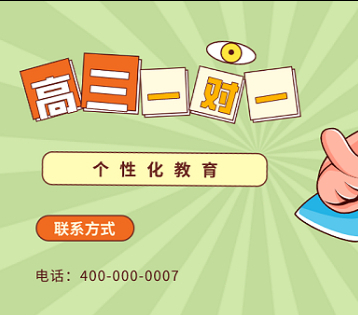 2021年9月山水联盟高三开学联考数学试卷及答案(原版)!2021年9月山水联盟高三开学联考已经结束,伊顿教育小编给大家整理了本次联考的数学试卷以及答案,各位相关的小伙伴可以参考一下。对于高三的学习,小编建议大家在每一次的考试之后,都能够仔细的分析一下自己的失分点,对于自己没有掌握的知识点可以尽早的掌握。
2021年9月山水联盟高三开学联考数学试卷及答案(原版)!2021年9月山水联盟高三开学联考已经结束,伊顿教育小编给大家整理了本次联考的数学试卷以及答案,各位相关的小伙伴可以参考一下。对于高三的学习,小编建议大家在每一次的考试之后,都能够仔细的分析一下自己的失分点,对于自己没有掌握的知识点可以尽早的掌握。










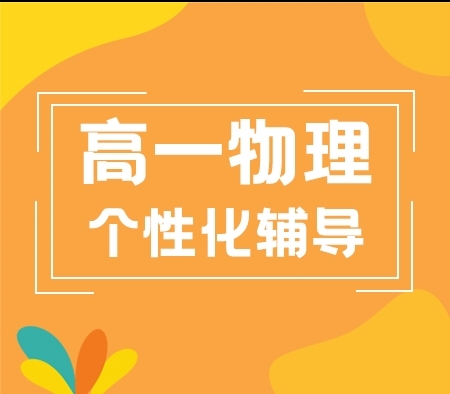
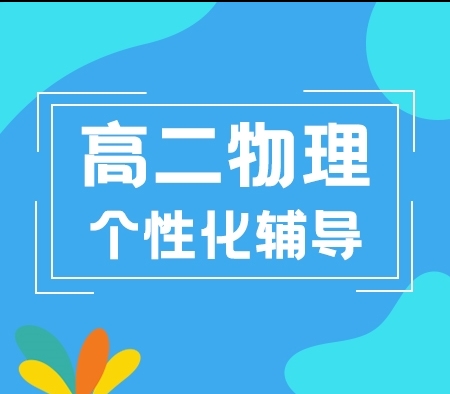
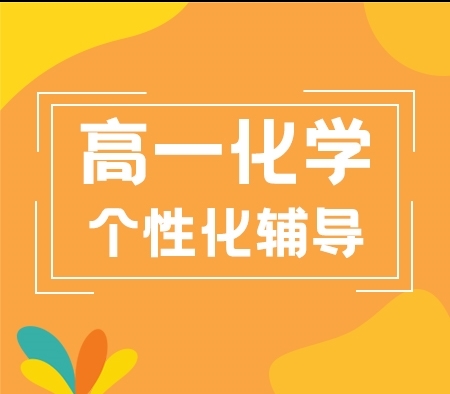
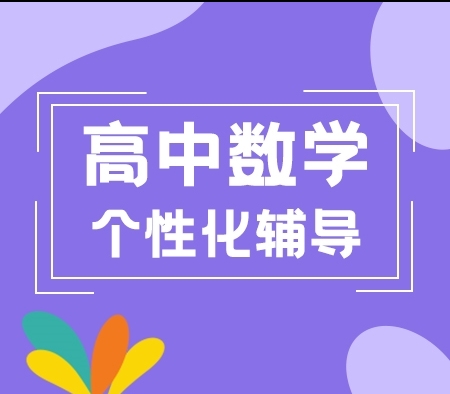




 All right reserved
All right reserved
